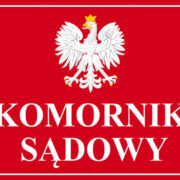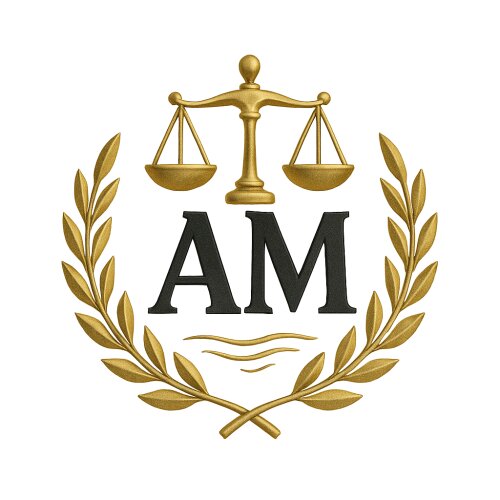Best Antitrust Litigation Lawyers in Mława
Share your needs with us, get contacted by law firms.
Free. Takes 2 min.
List of the best lawyers in Mława, Poland
About Antitrust Litigation Law in Mława, Poland
Antitrust litigation addresses disputes and enforcement actions that concern anti-competitive conduct - for example cartels, price-fixing, abuse of dominance, and unlawful practices that restrict competition. In Poland, antitrust rules come from two main sources - national law and European Union law. The national framework is governed by the Act on Competition and Consumer Protection and is enforced by the Office of Competition and Consumer Protection - known by its Polish acronym UOKiK. EU competition law - primarily Articles 101 and 102 of the Treaty on the Functioning of the European Union - also applies where cross-border effects or EU rules are relevant.
Although Mława is a regional town in the Masovian Voivodeship, antitrust matters that arise there can involve national authorities, Polish courts and sometimes EU institutions. Local businesses, consumers and public entities in Mława can be affected by investigations or become parties to private litigation seeking injunctions or damages.
Why You May Need a Lawyer
Antitrust matters are often complex and carry significant business and financial consequences. You may need a lawyer in the following situations:
- You receive a UOKiK investigation notice, audit notice or a request for information. Early legal support helps protect rights and avoid self-incrimination.
- Your company is subject to a dawn raid - authorities entering premises to collect evidence. Proper legal handling can limit damage and preserve privileged communications where applicable.
- You are accused of participating in a cartel, price-fixing or abuse of a dominant position. Specialized antitrust lawyers can build a defense, negotiate commitments or challenge evidence.
- You plan a merger or acquisition and are unsure whether the transaction must be notified to UOKiK or the EU. Counsel can advise on clearance risk and filing strategy.
- You believe your business has suffered harm from anti-competitive conduct and you want to claim damages or join a representative action.
- You need to implement or review competition compliance programs, internal policies and training to reduce enforcement risk.
- You must appeal a UOKiK decision or defend litigation brought by another party based on competition law.
Local Laws Overview
Key legal elements relevant to antitrust litigation in Poland include:
- National Competition Law - The Act on Competition and Consumer Protection regulates anti-competitive agreements, abuse of dominant position and concentrations. UOKiK enforces those rules through investigations, remedial decisions and fines.
- EU Competition Law - Articles 101 and 102 TFEU apply directly where conduct affects trade between EU Member States. In cross-border cases or cases with EU relevance, the European Commission or national authorities apply EU rules alongside Polish law.
- Enforcement Bodies - UOKiK is the principal national authority that opens investigations, runs dawn raids, negotiates commitments and issues decisions. Parties can challenge UOKiK decisions before administrative courts. For certain cross-border or high-impact matters, EU institutions may be involved.
- Private Enforcement - Victims of anti-competitive conduct can bring civil claims for damages before common courts. Poland also provides representative actions for consumer groups and collective redress mechanisms in specified circumstances.
- Merger Control - Certain mergers and acquisitions must be notified and approved if they meet legal thresholds or could significantly impede competition. Filing rules and timing requirements are set out in the law.
- Procedural Protections - Parties subject to investigation have rights such as access to file material, the right to respond to charges and to appeal administrative decisions. Legal privilege protections are more limited than in some other systems, so legal advice on document handling is important.
Frequently Asked Questions
What conduct can trigger antitrust enforcement in Poland?
Typical triggers include cartels and agreements that restrict competition, abuse of a dominant market position, certain vertical or horizontal agreements that limit resale or pricing freedom, and concentrations that substantially lessen competition. Both business practices and certain contractual clauses can be scrutinized.
Who enforces competition law in Poland?
The Office of Competition and Consumer Protection - UOKiK - is the main national authority. EU competition law can be enforced by the European Commission in cross-border cases. Private parties can also bring lawsuits in civil courts to obtain damages or injunctions.
What should I do if UOKiK opens an investigation or conducts a dawn raid?
Immediately contact a lawyer experienced in antitrust matters. Cooperate with lawful requests but avoid providing unnecessary or unreviewed documents. Ensure that privileged communications with your lawyer are kept separate. Record what the inspectors ask for and take careful notes. Early legal involvement helps protect your rights and manage the process.
Can I be fined for antitrust violations, and how large can fines be?
Yes, both companies and sometimes responsible managers can face fines and other administrative measures. Fines can be substantial, and UOKiK may also order remedies to stop unlawful conduct. The exact level of fines depends on the severity, duration and nature of the infringement and on statutory rules that guide sanctioning.
Can individuals or companies seek damages for anti-competitive conduct?
Yes. Victims of anti-competitive conduct may bring private actions for damages before common courts. These claims require proving the infringement, causation and the extent of loss. Evidence from UOKiK proceedings, if available, can strengthen a civil claim.
What is the role of EU law in Polish antitrust cases?
EU law applies directly where conduct affects trade between Member States or where EU competition rules are relevant. In such cases, EU rules take precedence and may be enforced by the European Commission or applied by national authorities and courts in Poland.
Do mergers always need to be notified to UOKiK?
Not always. Only mergers and acquisitions that meet legal thresholds or that could significantly impede competition are subject to mandatory notification. The thresholds and notification procedures are set by law. A lawyer can help determine whether your transaction requires notification and prepare the filing.
What is a leniency program and when might it apply?
Leniency programs allow participants in cartels to report the infringement to the authority in exchange for immunity or reduced fines. If your company or managers are involved in cartel behavior, discussing leniency possibilities with counsel immediately is critical because timing and full cooperation are often necessary to obtain benefits.
How long do antitrust investigations or litigation typically take?
Timelines vary widely. UOKiK investigations can range from months to several years depending on complexity. Administrative appeals and civil litigation can add more time. Complex multi-jurisdictional cases tend to be longest. Expect planning for a process measured in months at minimum and possibly years.
How do I choose the right lawyer for antitrust litigation in Mława?
Look for lawyers or law firms with demonstrated experience in competition law, both at national and EU level. Ask about their experience with UOKiK procedures, dawn raids, merger filings and private damages actions. Check whether they work with clients in your industry and whether they can coordinate with counsel in Warsaw or other jurisdictions if the case has broader reach.
Additional Resources
Useful organizations and institutions to consult when dealing with antitrust matters in Poland include:
- The Office of Competition and Consumer Protection - UOKiK - national enforcement authority for competition law and consumer protection.
- European Commission - Directorate-General for Competition - for matters with EU dimension and guidance on EU competition rules.
- Polish courts - administrative courts hear appeals against UOKiK decisions; common courts handle private civil claims for damages or injunctions.
- National and regional Bar Associations - for referrals to qualified antitrust lawyers and legal advisors.
- Industry associations and chambers of commerce - for sector-specific guidance and best practice on compliance.
Next Steps
If you believe you need legal assistance with an antitrust issue in Mława, consider the following practical steps:
- Act promptly. Antitrust matters often involve strict procedural deadlines and time-sensitive decisions.
- Gather and preserve documents and communications that relate to the issue. Maintain a clear chain of custody for evidence.
- Contact a lawyer experienced in competition law. Ask for an initial assessment of risk, possible defenses and likely outcomes.
- If you receive official notices or are subject to an inspection, involve counsel before responding or handing over documents.
- Evaluate whether internal compliance programs need updating to prevent future issues.
- If you are a potential victim of anti-competitive conduct, ask your lawyer about the viability of private enforcement - for example damages claims or representative actions - and whether there are practical steps to build your case.
Antitrust disputes can have major legal and commercial consequences. Local knowledge of Polish and EU rules combined with timely specialist advice will help protect your interests and improve the chance of a favorable outcome.
Lawzana helps you find the best lawyers and law firms in Mława through a curated and pre-screened list of qualified legal professionals. Our platform offers rankings and detailed profiles of attorneys and law firms, allowing you to compare based on practice areas, including Antitrust Litigation, experience, and client feedback.
Each profile includes a description of the firm's areas of practice, client reviews, team members and partners, year of establishment, spoken languages, office locations, contact information, social media presence, and any published articles or resources. Most firms on our platform speak English and are experienced in both local and international legal matters.
Get a quote from top-rated law firms in Mława, Poland — quickly, securely, and without unnecessary hassle.
Disclaimer:
The information provided on this page is for general informational purposes only and does not constitute legal advice. While we strive to ensure the accuracy and relevance of the content, legal information may change over time, and interpretations of the law can vary. You should always consult with a qualified legal professional for advice specific to your situation.
We disclaim all liability for actions taken or not taken based on the content of this page. If you believe any information is incorrect or outdated, please contact us, and we will review and update it where appropriate.











